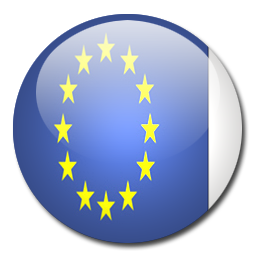European Parliament Votes to Isolate Europe Online
posted Saturday Sep 15, 2018 by Scott Ertz

Since the European Parliament began working on one of many conflicting regulations for online behavior, there has been nothing but negative comments. This particular package is designed to change the way copyrights are enforced in the EU, but the idea is poorly considered and creates an environment that makes doing business online within the European Union difficult for some and impossible for most. With all of the negative response to the regulations, it seemed nearly impossible that it would actually pass the European Parliament.
Never underestimate the confidence the European Parliament has in ignoring the will of the people, however, as this week they passed the package, starting the process of changing copyright enforcement within the EU. In the US, we have a policy called the Digital Millenium Copyright Act (DMCA), which protects online services from legal action because of content that users upload to their platform. For example, if a user uploads an episode of a television show to YouTube, YouTube is not legally responsible for an act they were not involved with, so long as they respond to a copyright claim from the owners within a reasonable timeframe. The new regulations in the EU go the other way, seemingly removing the responsibility from the user who uploaded the content and moving it to YouTube, who did nothing.
Online content sharing service providers perform an act of communication to the public and therefore are responsible for their content and should therefore conclude fair and appropriate licensing agreements with rightholders.
In addition, this package implements the much talked about link tax, a required licensing fee for services that provide links to news content. We all know that Google, Facebook, Twitter, and MSN are all common ways for people to find news because they provide links to external news sources, some curated and some user-generated. Under the new rules, those sites would be required to pay the news sites that they are bringing users to in order to do so. Spain and Germany tried this previously, and Google responded by pulling Google News entirely from those countries. If the EU's goal is to limit the amount of information available to people, they're headed in the right direction.
These new regulations will guarantee that new companies will not be able to exist within the EU, limiting the innovation within the EU. People with good ideas are going to have to block their products within the region, hurting the people of the EU as well.
This fight is not over, though. The EU's legal process is convoluted at best. Now that the Parliament has approved the package it goes to a committee including the Parliament, the Council of the Europe Union and the European Commission. If it makes it through all of that, it still has to be approved by the 28 member countries of the EU before it goes into effect. Hopefully, the voices of the people, the Electronic Frontier Foundation and other organizations will be heard in this process in the next few months.

